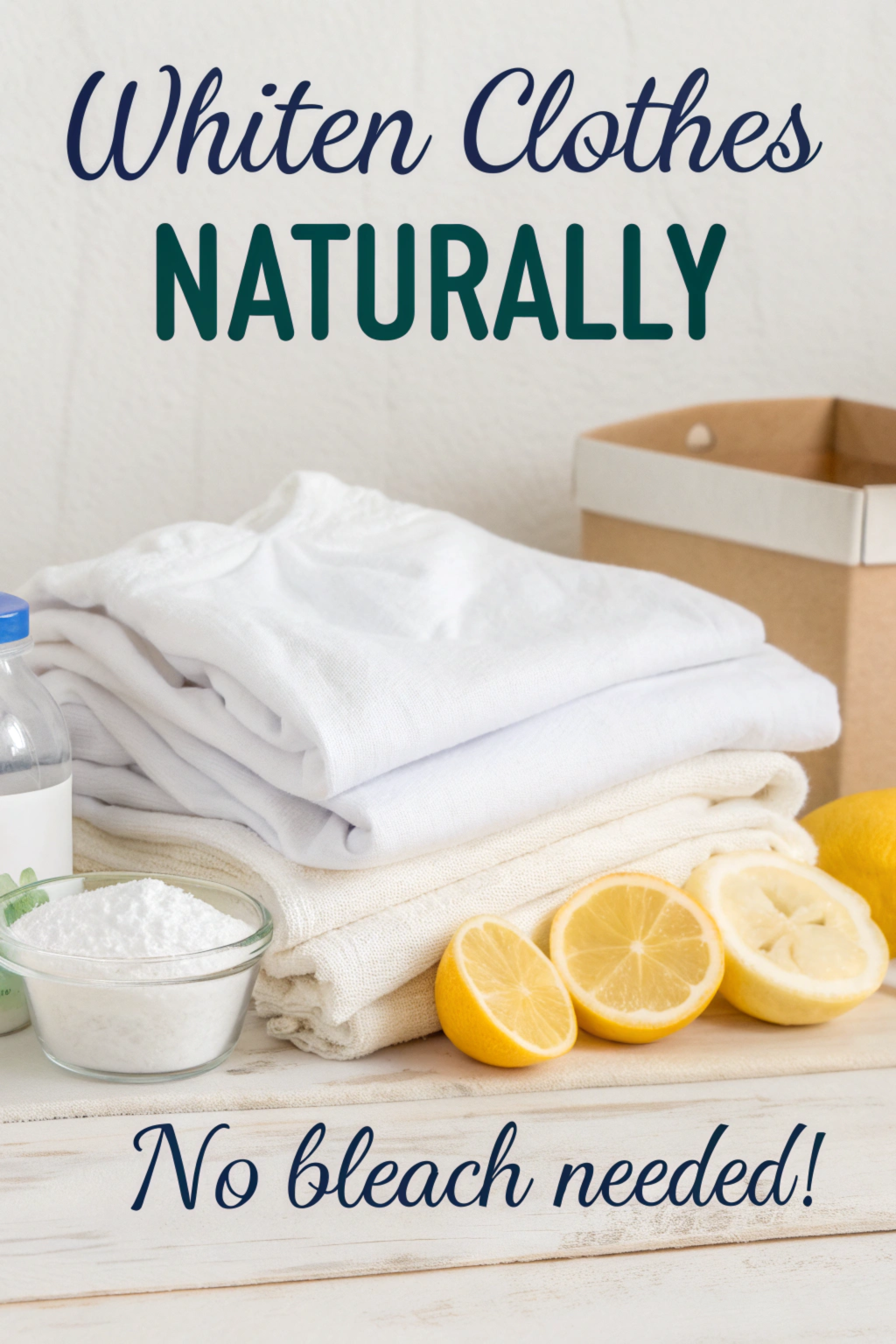Are you tired of using harsh chemicals to keep your white clothes looking fresh and bright? Good news – you can achieve that pristine whiteness naturally, without reaching for the bleach! In this guide, we’ll explore effective, eco-friendly methods to whiten your clothes while being gentle on both your fabrics and the environment.
Why Choose Natural Whitening Methods?
Traditional bleach, while effective, comes with several drawbacks:
- It can weaken fabric fibers over time
- It may cause yellowing of white clothes
- It’s harsh on sensitive skin
- It’s not environmentally friendly
- The strong fumes can be harmful to breathe
Natural alternatives offer a safer, gentler approach while still delivering excellent results.
Natural Whitening Ingredients
Before we dive into the methods, let’s gather our supplies. You’ll need:
- Fresh lemons
- White vinegar
- Baking soda
- Hydrogen peroxide (3%)
- Sunlight (yes, it’s a key ingredient!)
- Large pot or washing machine
- Warm water
Effective Natural Whitening Methods
1. The Lemon Method
This citrus powerhouse is nature’s bleach alternative:
- Slice 3-4 fresh lemons
- Add them to a large pot of water
- Bring to a boil
- Add your white clothes and let them soak for 1-2 hours
- Wash as usual
2. Baking Soda and Vinegar Power Combo
For stubborn stains and general whitening:
- Mix ½ cup baking soda with your regular detergent
- Add ½ cup white vinegar to the rinse cycle
- Run a normal wash cycle with warm water
3. Sunlight Brightening
The sun is a natural whitening agent:
- Wash your clothes as usual
- While still damp, hang them outside in direct sunlight
- Leave them for 2-4 hours, depending on sun intensity
- Bring them in once dry
Pro Tips for Best Results
- Pre-treat Stains: Make a paste with baking soda and water, apply to stains before washing
- Regular Maintenance: Use these methods consistently to prevent yellowing
- Water Temperature: Warm water works best for activating natural whitening agents
- Avoid Mixing: Use one method at a time to prevent unexpected reactions
- Sort Carefully: Always separate whites from colors, even with natural methods
Common Mistakes to Avoid
- Don’t use hot water – it can set stains and damage fabrics
- Don’t leave clothes in direct sunlight for too long
- Don’t skip the regular wash cycle after natural treatments
- Don’t mix different natural whitening methods without testing first
When to Use Each Method
- Lemon Method: Best for cotton and linen items
- Baking Soda/Vinegar: Great for all washable whites
- Sunlight: Perfect for any white fabric, especially delicates
Environmental Benefits
By choosing natural whitening methods, you’re:
- Reducing chemical runoff in waterways
- Decreasing plastic packaging waste
- Supporting sustainable laundry practices
- Protecting aquatic ecosystems
Final Thoughts
Natural whitening methods require a bit more patience than chemical bleach, but the results are worth it. Your clothes will last longer, your impact on the environment will be smaller, and you’ll achieve that bright, clean look you desire – all while keeping harmful chemicals out of your home.
Remember to always test these methods on a small, hidden area first, especially with delicate fabrics. With consistent use of these natural techniques, you’ll never need to reach for the bleach again!
Ready to try natural whitening? Start with the lemon method today – your clothes (and the planet) will thank you!

